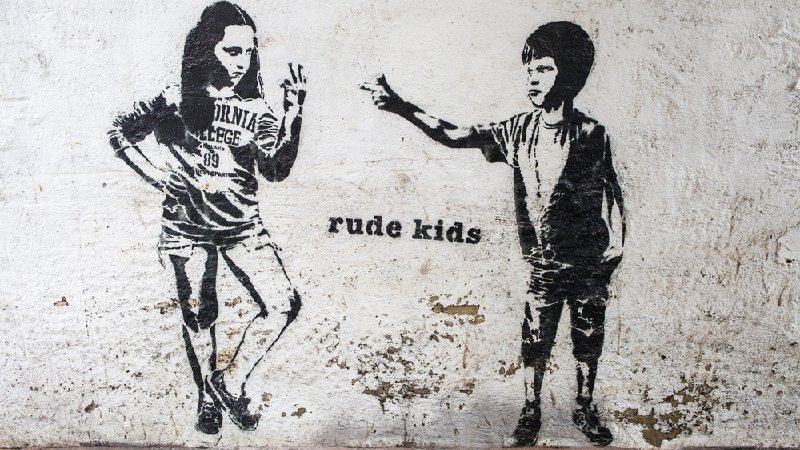
-
HOME
-
WHAT IS STANDOur Mission Our Values Our Help Contact
-
WHAT WE FIGHT FORReligious Freedom Religious Literacy Equality & Human Rights Inclusion & Respect Free Speech Responsible Journalism Corporate Accountability
-
RESOURCESExpert Studies Landmark Decisions White Papers FAQs David Miscavige Religious Freedom Resource Center Freedom of Religion & Human Rights Topic Index Priest-Penitent Privilege Islamophobia
-
HATE MONITORBiased Media Propagandists Hatemongers False Experts Hate Monitor Blog
-
NEWSROOMNews Media Watch Videos Blog
-
TAKE ACTIONCombat Hate & Discrimination Champion Freedom of Religion Demand Accountability
What’s Behind the Attacks on Newer Religions?
For about half a century, an insidious stage whisper of disapproval has been running as a continuous murmur against the “newer” religions—those that have risen within the past century or two. As survey after survey depicts an overall downtrend in mainstream religion—dwindling church attendance and soaring numbers of those who don’t identify with any faith—the minority faiths continue to grow.

Is resentment against the rising new generation of religions fueling the pushback? Or is it a calculated plan to undermine these so that, together with the decline of traditional religions, we shortly end up with a purely secular world where the only heaven is cyberspace and the only moral accountability lies in profit?
Sociologist of religions Massimo Introvigne, founder and director of the Center for Studies on New Religions, suggests that governments and individuals who need secular values to triumph over religious or moral ones have been at the heart of the attacks on new religions.
The circular reasoning goes like this: Such-and-such is a “cult” because it uses “brainwashing.” How do we know it uses “brainwashing”? Duh! Because it’s a “cult”!
In a paper presented this spring to the 4th International Institute for the Study of Freedom of Religion and Belief Conference in Leuven, Belgium, Introvigne offered the four essential lies purveyed by those most interested in destroying newer (and ultimately, all) religions.
Lie Number One: If we call them “cults,” that means they’re not religions. And because they’re not religions, they shouldn’t get religious freedom or any of the other “perks” that go with being a religion. They should be taxed, monitored and supervised very carefully, lest they do anything we don’t like, at which point we can arrest them, put them under receivership, ban them, deport their members, etc.
Lie Number Two: OK, since we “know” they’re not religions, that means that no one in their right mind would become a member. Therefore, anyone who is a member has doubtless been “brainwashed,” “mentally manipulated,” or has undergone “psychological subjection.” Introvigne says, “This theory was quickly debunked by scholars as a scientific fraud... but continues to be used by governments and included in laws and regulations from France to Japan.”
The circular reasoning goes like this: Such-and-such is a “cult” because it uses “brainwashing.” How do we know it uses “brainwashing”? Duh! Because it’s a “cult”! The bonus to this idiocy is that if someone is a member of something because they were “mentally manipulated” against their will, they’re not a member at all, but a VICTIM and so, therefore, must be rescued!
Lie Number Three: Don’t believe scientists or scholars when they debunk “brainwashing” as they are, by our “definition,” either too clueless of the evil represented by these “cults,” or, worse, are “paid cult apologists,” who, unlike us, are motivated not by truth and justice, but by greed. Instead, believe the tiny minority of ex-members who speak out against the group that once tried to help them. (These hostile ex-members are called “apostates” and have been shown, in study after study, to only furnish unreliable information at best and vicious lies at worst.)
Lie Number Four: We know we should believe the handful of apostates despite the overwhelming evidence to the contrary provided by scholars, social scientists and the millions of perfectly happy members of these new religions because, well, apostates are “victims,” after all. And as “victims,” they “tell the truth” and, therefore, are morally superior to us all. Let us believe their stories to governments, courts and the always hungry-for-dirt-whether-true-or-fabricated tabloid media. Let us form anti-cult associations to lend credibility and righteousness to our anti-religion cause. And let us enact laws—draconian laws with stiffer-than-stiff penalties—to protect us all from the vile machinations of these new religions and, hopefully, in the end, wipe them from the face of the Earth.
Introvigne says, “Of course, this model can be shortened to one single passage: a group is a ‘cult’ if anti-cult organizations or their international federations such as FECRIS [European Federation of Centres of Research and Information on Sectarianism] say it is a ‘cult.’”
Introvigne emphasizes that the above four lies have “no scientific value” and are simply convenient tools of discrimination against communities that certain governments or lobbies don’t like. Also, by saying that the religions that are expanding—that are increasing their membership and doing well overall—aren’t religions but, in fact, just very, very bad people pretending to be members of religions, grist is added to their malicious mill that the decline of actual religion is inevitable and irreversible. Make ready for the triumph of secularism!
Secularism acknowledges no soul, no immortal factor in the human equation.
With no soul, we are no better than beasts.
And being no better than beasts, there is no liability in controlling, enslaving or killing us.
That appears to be the plan.
Possibly, some of us suspected something funny—read creepy—was afoot. Thanks to Massimo Introvigne, the cat is out of the bag.
Now, let’s do something about it.









